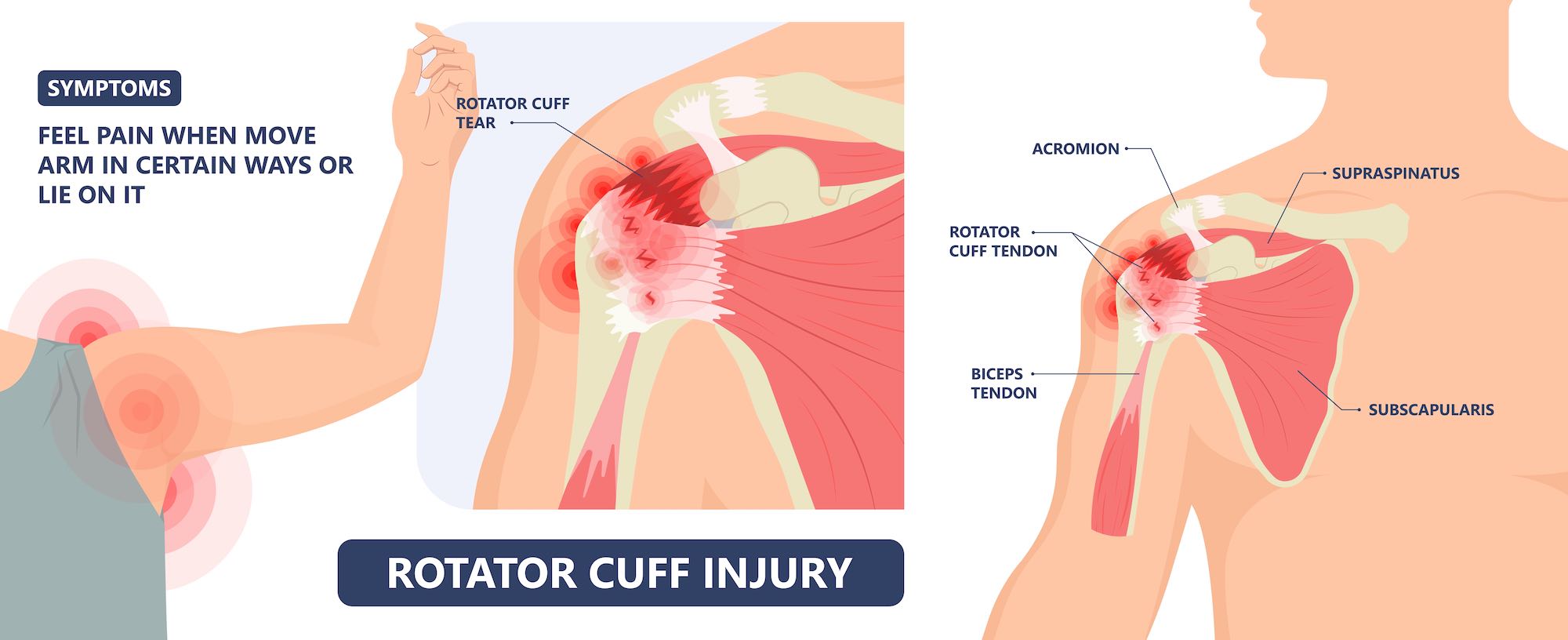A rotator cuff tear is a relatively common injury that can occur from either repetitive use or a traumatic event. While surgery may be necessary in some cases, there are also many nonsurgical treatment options available.
What is a rotator cuff tear and what are the symptoms?
A rotator cuff tear is a tear in one or more of the muscles or tendons that make up the rotator cuff. The rotator cuff is composed of 4 tendons that attach to the humeral head (ball) of the shoulder joint. These tendons include the subscapularis, supraspinatus, infraspinatus, and teres minor.

These tendons help lift the arm, and when they are injured, it can be very difficult to do even simple tasks like reaching for something on a high shelf.
The most common symptoms of a rotator cuff tear are pain and weakness in the shoulder. You may also have difficulty raising your arm above your head or rotating your arm inward or outward.
What are the primary causes of rotator cuff tears?
There are many possible causes of rotator cuff tears, including:
- Repetitive use, such as from sports or work
- Falling on your outstretched arm
- A direct blow to the shoulder
- A rotator cuff injury that occurs years earlier and has not healed properly
While rotator cuff tears do occur often in athletes, the majority of tears tend to be in adults over the age of 40 and are caused by wear and tear from years of use.
How is a rotator cuff tear diagnosed?
The most common way to diagnose a rotator cuff tear is with an MRI scan. However, other tests such as X* rays or a rotator cuff ultrasound may be used to help make a diagnosis.
How are rotator cuff tears treated?
There are many different treatment options for rotator cuff tears, and the best option depends on the severity of the tear and your individual situation. Some of the most common treatment options include:
Nonsurgical rehabilitation which may include activity modification, NSAIDs, cortisone injections, physical therapy, and/or bracing
Platelet Rich Plasma (PRP) A rotator cuff tear can also sometimes be treated with PRP injections. PRP is a substance that is made from your own blood. It contains growth factors and other proteins that help promote healing.
Arthroscopic surgery which is a less invasive surgical procedure used to treat rotator cuff tears.
What is the prognosis for someone who has a rotator cuff tear?
The prognosis for rotator cuff tears varies depending on the severity of the tear and the treatment options chosen. With appropriate treatment, most people with rotator cuff tears will see a significant improvement in their symptoms.
How can you prevent a rotator cuff tear from happening?
There are several things you can do to help prevent rotator cuff tears, including:
- Maintaining good posture
- Regular stretching and strengthening exercises
- Avoiding excessive overhead or arm movements
- Wearing a rotator cuff support or brace if you are at risk for rotator cuff tears
What to do if you suspect a rotator cuff tear
If you are experiencing any of the symptoms of a rotator cuff tear, it is important to see an orthopedic surgeon for evaluation. Early diagnosis and treatment is often the best way to achieve the best possible outcome.
Related Materials: Common Questions About Rotator Cuff Tears





